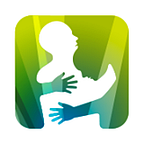Stories from Wisconsin
Now’s your chance to let Congress know you’re passionate about CARA!
Both the Senate and House have passed versions of the Comprehensive Addiction and Recovery Act. Conferees from both bodies are currently meeting in what’s known as “conference” to finalize one bill that will go to the President’s desk for signature and passage into law.
It’s critically important that the conferees hear from you as soon as possible! These policy leaders must understand how important a comprehensive addiction response is in their home state.
Share a link to this story (or tweet your own!) with Senator Paul Ryan (Wisconsin) on Twitter: @SpeakerRyan. If you’re not on Twitter, share your story with us here.
“I have a close relative who has battled with addiction almost his entire life. It is a cause that is extremely important to me. It is an illness, not a character flaw. It needs to be treated as such. I do hold people accountable for their actions whether they have been using a substance or not, but also believe this illness is like any others that are covered by insurance and treated with compassion.
Like heart disease, diabetes, eating disorders, cancer… people may have been doing something in their lives that could’ve contributed or caused them to get those diseases as well. (Just like addiction, where a person may have tried alcohol or drugs once or more and become addicted, or maybe needed it for pain relief after a surgery and become addicted at that point.). For those people out there who want to blame the addicts for ‘choosing’ to take the alcohol or drugs — choosing the disease of addiction, or continuing in it — they should think about whether we blame other people for their diseases as well.
For example, people with a poor diet might lead to diabetes, people who are overweight might need knee replacements, and people who may deal with stress inappropriately might end up with an eating disorder. What about skin cancer? Did you wear enough sunscreen? Do we blame those people for their illnesses, and chastise them for being sick? These people need help, not to just be thrown out like trash, as if they aren’t important. Aren’t your family members important when they get sick?
This disease affects so many lives, more than just the addics themselves. Parents, children, innocent people who get hit by an (addicted) drunk driver. It makes our healthcare costs go up, for the illnesses they end up with or accidents they get into. Everyone knows an ounce of prevention, and caring for people so they can become well is worth a pound of cure. The productivity lost on jobs, the personal cost to our school children whose parents are addicted, the violence and illness that can be attributed to addiction is astounding.
Just say no is great, but if you’re sick or addicted, it doesn’t work. We need programs that will work. America is at risk. We are losing our morals and the foundation of our country and this is part of it. Help these causes before it’s too late, and so many lives go wasted that don’t have to be and could be so much more. Thank you.” -Michele | Eau Claire, WI
“I work as a counselor in a chemical dependency treatment center. So many of our patients have become addicted to opioids after their doctors prescribed pain medications. It is mind boggling. At the same time, I have been prescribed pain medications and have not become addicted; in fact, I get sick from them. I would like doctors to be more discerning about the prescriptions they write, and to whom. If someone is asking for more than one or two prescriptions to be filled, that should be monitored. If a person is only asking for a prescription per year or less, maybe the doctor should be allowed to fill it. Guidelines that allow doctors that kind of leeway in prescribing pain medications are what I believe is the best course of action. Thank you.” -Karen Bergh LADC | Balsam Lake, WI
